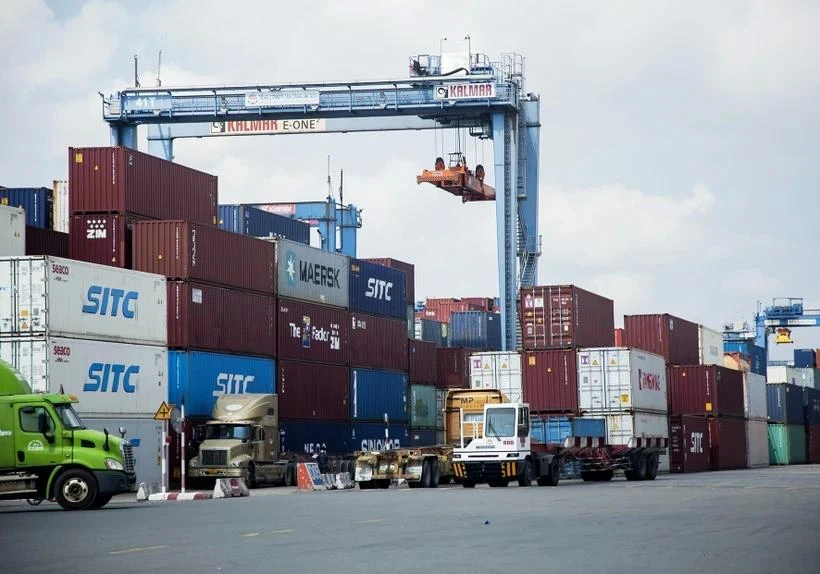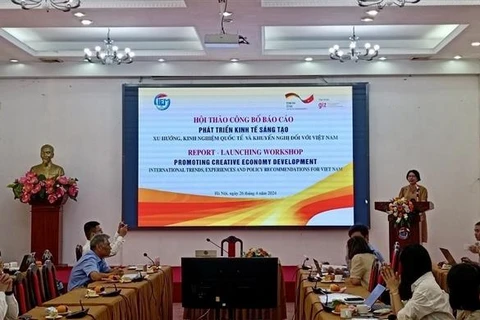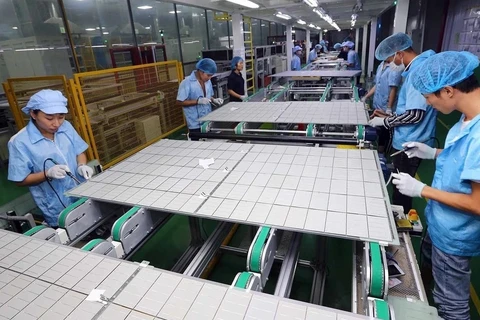
Hanoi (VNA) – Important socio-economic achievements recorded in the first six months of this year prompted the Central Institute for Economic Management (CIEM) to give a forecast of 6.55-6.95% for Vietnam’s economic expansion for 2024.
In a report released at a workshop themed “Vietnam’s Economy in the First Half and Outlook for 2024: New Impetus for Quality Growth” held in Hanoi on July 9, the institute presented two scenarios for the Vietnamese macro-economy for the rest of the year.
In the first scenario, the GDP growth is forecast at 6.55%, and exports to increase by 9.54% compared to 2023. The average consumer price index (CPI) for the year is projected to rise by 4.31% year-on-year, and the trade balance is to maintain a surplus of 5.7 billion USD.
This scenario is based on the assumption that world economic factors continue to remain consistent with the assessments of international organisations, and Vietnam maintains similar policy efforts as proposed in the first half of 2024.
Meanwhile, in the second one, the country’s economic growth will reach 6.95%, with export growth hitting 11.64%, CPI surging by 4.12%, and the trade surplus rising to 7.3 billion USD.
Nguyen Anh Duong, head of the CIEM’s Department for General Economic Issues and Integration Studies said that the scenario is based on the world economic context with some more positive changes. This includes recovery of the supply chain as well as positive signs in investment in digital transformation and green transformation.
The first scenario assumes that global economic factors will continue to align with assessments from international organisations, and Vietnam will maintain policy efforts similar to those in the first half of 2024. The second involves more positive global economic conditions, including faster recovery growth, increasing interest from investors in Southeast Asian countries, supply chain restoration, and positive changes in investments in digital transformation and green transition.
In the more positive scenario, Vietnam is assumed to effectively implement economic reform and management measures, which produce the best results in terms of public investment disbursement/absorption, credit, labour productivity growth, business environment improvement, and the enhancement of national competitiveness.
CIEM Director Tran Thi Hong Minh said that since the beginning of 2024, Vietnam’s priority is to boost economic growth by stabilising the macro-economy, curbing inflation, and ensuring major balances.
In the first half, economic growth hit 6.42%, exports expanded by 14.5%, and inflation was controlled.
To achieve the goals set for the remaining months of this year, Duong said that it is necessary to conduct research and develop a comprehensive programme on promoting quality economic growth in the 2025-2026 period.
CIEM recommended improving the quality of growth, enhancing the capacity for innovation and adaptation to major trends such as digital transformation and green transition, and increasing labour productivity. More recommendations include perfecting the legal framework for new economic models like circular economy, digital economy, sharing economy, and the creative economy.
In addition, the Government needs appropriate macroeconomic policy management solutions and to closely monitor inflation, while maintaining fiscal space to cope with future shocks effectively.
Regarding trade policy, CIEM experts underlined the need for research and implementation of solutions to diversify export products and export markets./.






















